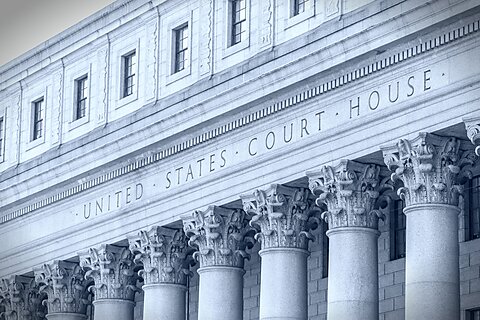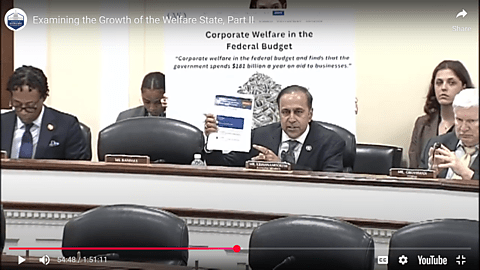
Thomas A. Berry and Nathaniel Lawson
Chief Justice John Marshall famously stated in Marbury v. Madison (1803) that “[i]t is emphatically the province and duty of the judicial department to say what the law is.” This principle forms the core of judicial review, which under our Constitution’s separation of powers scheme serves as a critical check on the executive and legislative branches.
Unfortunately, a precedent in the Federal Circuit (the appeals court that handles trade and intellectual property cases, among others) has undermined this check. But now the Federal Circuit has an opportunity to overrule this misguided precedent, and it should take it.
In January 2018, President Donald Trump issued an international trade “safeguard measure” that, among other things, imposed tariffs on solar panel imports. In June 2019, the US Trade Representative granted an exclusion from these tariffs for “bifacial” solar panels, panels that can capture sunlight on both sides. But a year later Trump revoked this exclusion and increased the tariff rate, supposedly under the authority of a statutory provision permitting the president to make “modification[s]” to international trade measures. The Solar Energy Industries Association, alongside several other groups, challenged these acts as beyond the president’s statutory authority to make “modifications.” The US Court of International Trade agreed that President Trump had exceeded his authority.
On appeal, a three‐judge panel of the Federal Circuit reversed. Yet the court did not conclude that the president’s interpretation of the statute was correct, or even that the president’s interpretation was better than the plaintiffs’ interpretation. Instead, the court held that it was bound to uphold the president’s interpretation under the Federal Circuit precedent of Maple Leaf Fish Co. v. United States (1985). That precedent mandates deference if the case involves foreign affairs and the executive’s interpretation is not a “clear misconstruction of the … statute.”
Now the plaintiffs are asking the full Federal Circuit to review the case, and Cato has filed an amicus brief supporting that petition and urging the Federal Circuit to overrule Maple Leaf. In our brief, we explain that Maple Leaf is contrary to the separation of powers, which is “essential to the preservation of liberty” (Federalist 51). Judicial review serves as a critical check against executive attempts to extend laws beyond their meanings. But that critical check only has bite when the judiciary interprets the law independently from the executive. Maple Leaf prohibits the judiciary from exercising such independent judgment.
Furthermore, Maple Leaf is contrary to both Supreme Court and prior Federal Circuit precedent. Up until the misguided Chevron era (which should also end this year), the Supreme Court did not defer to executive interpretations of the law. And in recent years the Court has returned to that approach, independently determining the meaning of statutes using traditional rules of construction, even in cases involving foreign affairs. Nor do Federal Circuit precedents before Maple Leaf provide any better support for Maple Leaf’s extreme deference.
Those precedents merely say that courts should apply the plain meaning of statutes involving foreign‐affairs powers and not artificially cabin them. The cases do not support deferring to executive interpretations of pure questions of law.
Maple Leaf was wrongly decided, and its precedent forced the panel to reach the wrong outcome in this case. The Federal Circuit should grant rehearing en banc, overrule Maple Leaf, and reverse the panel’s decision.



